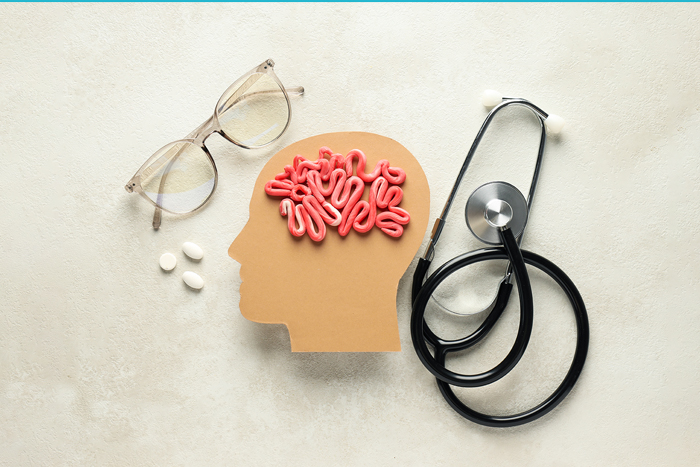Eat smart, think smart! As we celebrate World Brain Day, it’s time to uncover the scrumptious secrets that can nourish our minds and ignite our cognitive powers. Have you ever wondered how the foods we consume impact our brain health? Well, we have answers! From juicy berries to omega-3-packed fish and vibrant leafy greens, we’ll unravel the simple yet powerful ingredients that can enhance memory, concentration, and overall brain function.
World Brain Day is a globally recognized occasion that shines a spotlight on the remarkable organ that orchestrates our thoughts, emotions, and actions: the brain. Celebrated annually on July 22nd, World Brain Day serves as a reminder of the vital role our brains play in shaping our lives. It is an opportunity to raise awareness about brain health, promote scientific advancements, and encourage discussions surrounding brain-related disorders.
What is brain food?
Brain food refers to a collection of nutrient-rich, power-packed foods that provide the essential vitamins, minerals, and antioxidants needed to support optimal brain function. They are known to boost memory, improve focus, and promote overall cognitive well-being. Some good examples for brain food are eggs, whole grains like quinoa, brown rice and oats, dark chocolate (yes, chocolate is a brain food!), nuts and seeds and fatty fish.

What we eat has a big impact on our brain health. It’s important to understand that the foods we consume directly affect how our brains work. When we have a balanced diet that includes important nutrients, antioxidants, and healthy fats, it provides the necessary materials for our brains to function at their best. Nutrients like omega-3 fatty acids, vitamins (like B vitamins and vitamin E), minerals (including iron, zinc, and magnesium), and antioxidants help fight stress, reduce inflammation, and support the brain’s ability to adapt and make new connections. On the other hand, an unhealthy diet with lots of processed foods, sugar, and unhealthy fats can harm our brain function and increase the risk of diseases. By choosing nutritious foods, we give our brains the best chance to thrive and keep our minds sharp and healthy.
On the other hand, if we eat a lot of processed foods, sugary treats, and unhealthy fats, it can actually harm our brain. It can make our brain work less effectively, make it harder to think and remember things, and raise the chances of getting diseases that affect the brain.
Talking about food, we certainly cannot forget nutrients.
Our brains need certain nutrients to work their best. These nutrients help our brain cells communicate well and stay healthy. Omega-3 fatty acids are really important and can be found in fatty fish like salmon and walnuts. They help our brains grow and work better. B vitamins like B6, B12, and folate are also needed. They make brain chemicals that affect our mood and memory. Antioxidants such as vitamin E and C are like protectors for our brain cells. They keep them safe from damage caused by harmful substances. Minerals like iron, zinc, and magnesium are crucial too. They help make the brain chemicals that let our brain cells talk to each other properly. By eating foods with these essential nutrients, we give our brains the best chance to work well and keep us thinking and feeling our best.
Some foods can help us remember things better and stay focused. Berries like blueberries and strawberries have special substances called antioxidants that protect our brain cells and help them communicate better. This makes our memory and thinking improve. Leafy greens like spinach and kale have important nutrients like folate, vitamin K, and antioxidants that keep our brain healthy and help us concentrate more easily. Fatty fish like salmon and sardines have something called omega-3 fatty acids that build our brain cells and make our brain chemicals work better. This helps us remember things and stay focused. Nuts and seeds like almonds, walnuts, and pumpkin seeds also have nutrients like antioxidants, vitamin E, and healthy fats that make our memory stronger and help us think better. The important thing is that these foods have special nutrients that improve blood flow to our brain, make our brain chemicals work better, reduce swelling, and protect our brain cells from harm.
Much like the physical impact of brain food, does it also affect mental well-being?
Definitely! The food we eat can really affect how we feel mentally. When we have a healthy diet with brain-boosting foods, it gives our brain the nutrients it needs to work well and keeps our mood and emotions in check. For example, fatty fish has something called omega-3 fatty acids that can help reduce feelings of sadness and worry. Eating fruits and veggies with lots of antioxidants can fight against stress and swelling, which are connected to mental health problems. Foods with B vitamins, like folate, can help make chemicals in our brain that control our mood, like serotonin. By choosing these kinds of foods, we take care of our brain and make sure we feel good mentally too. Moreover, it’s important to keep our blood sugar levels steady by eating a balanced diet. This helps us avoid sudden drops in energy and mood swings. On the other hand, eating a lot of processed foods, sugary treats, and unhealthy fats can harm our mental well-being. It can lead to problems with our mood and thinking abilities. By choosing foods that are good for our brain, we give it the nourishment it needs. This helps us feel better emotionally and promotes a positive mental state.
The Mediterranean diet- what is it?
The Mediterranean diet is a way of eating that people in Mediterranean countries follow. It focuses on lots of fruits, veggies, whole grains, beans, and olive oil. It also includes moderate amounts of fish, chicken, dairy, and sometimes red wine. The diet avoids too much red meat, processed foods, and sugary treats. The Mediterranean diet has long been associated with numerous health benefits, including its positive impact on brain health. The abundance of fruits and vegetables provides essential vitamins, minerals, and antioxidants that help reduce inflammation and oxidative stress in the brain, lowering the chances of brain diseases.
Drinking enough water is really important for our brain to work well. Our brain is mostly made of water, and even a little bit of dehydration can affect how well we think. When we’re hydrated, water helps keep the balance of important substances called electrolytes in our brain. These electrolytes help our brain cells communicate with each other. Water also makes sure that our brain gets enough oxygen and nutrients by keeping a good blood flow. But if we don’t drink enough water and become dehydrated, it can make it hard to concentrate, remember things, and think clearly. Dehydration can also cause headaches and make us feel tired, which makes it even harder to do things. Staying adequately hydrated throughout the day supports optimal brain function, improves focus, enhances memory, and helps us stay mentally sharp.
The word ‘antioxidants’ is used hand-in-hand with brain health- but what are antioxidants and what do they actually do?
Simply, antioxidants are substances that help protect our cells from damage caused by harmful molecules called free radicals. Antioxidants stop the free radicals from causing damage to our cells, and are made by our bodies or found in certain foods and supplements. Some common antioxidants are vitamins C and E, beta-carotene, selenium, and special compounds from plants like flavonoids and polyphenols. They help preserve the integrity of cell membranes, support proper signaling between brain cells, and promote healthy blood flow to the brain. Including antioxidant-rich foods, such as fruits, vegetables, nuts, and certain herbs and spices, in our diet can support brain health, develop cognitive function, and potentially contribute to a lower risk of age-related brain disorders.
To sum it up, on this World Brain Day, we should remember how important nutrition is for our brain health. By eating brain-boosting foods like berries, fatty fish, leafy greens, and nuts, we give our brains the nutrients, antioxidants, and healthy fats they need to work well. Drinking enough water and eating foods with antioxidants also help our brain function at its best, improve our memory, focus, and overall mental well-being. It’s essential to make smart food choices because they can nourish and safeguard our brains, making us think better and lowering the risk of memory problems as we get older.
So, today, let us make a commitment to prioritize brain health and embrace the wonders of brain food, fueling our minds for a future filled with clarity, creativity, and cognitive vitality.




